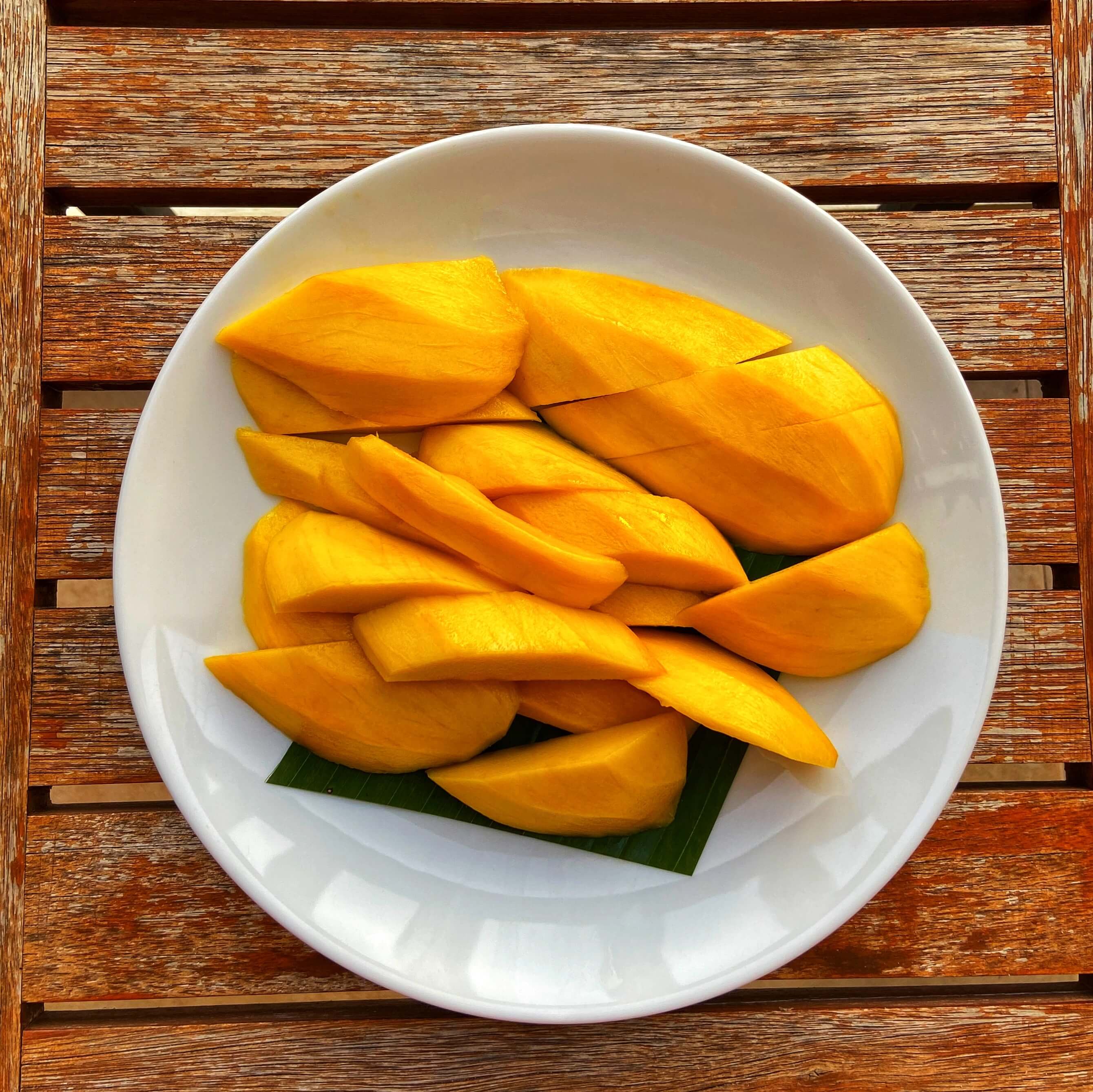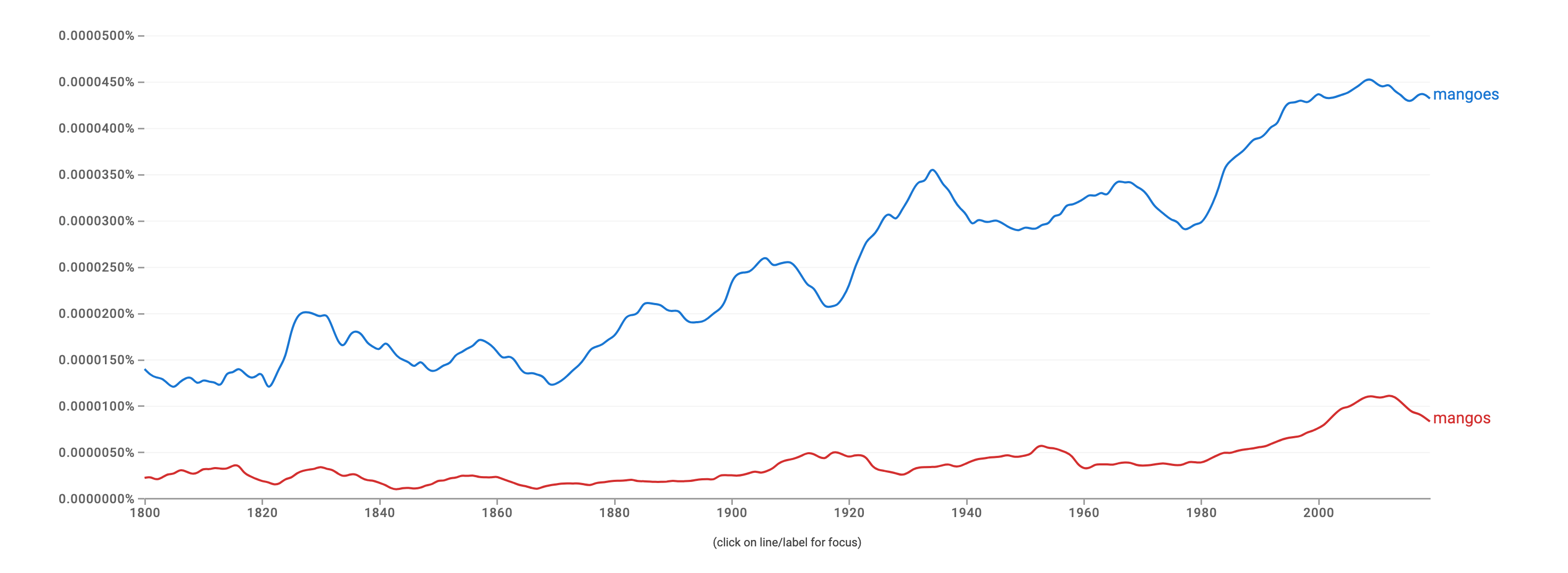- The terms "mangoes" and "mangos" both refer to the same delicious tropical fruit.
- "Mangoes" is the more accepted plural form of mango, while "mangos" is the informal variant.

What is the plural form of mango?
The correct plural form of mango is "mangoes." When referring to more than one of these tropical fruits, it is appropriate to use "mangoes" as the plural form, reflecting the standard English pluralization rules for nouns ending in "-o."
For example, "mango" becomes "mangoes," "tomato" becomes "tomatoes," and "hero" becomes "heroes."
What are mangoes?
Mangoes are tropical fruits with a sweet, juicy flesh and a distinctively rich flavor. They belong to the genus Mangifera and are native to South Asia. Mangoes are widely cultivated for their delicious taste and are a good source of vitamins and minerals.
Example sentence
- I bought a dozen mangoes from the market.
- Mangoes are a popular tropical fruit known for their sweet and juicy flavor.
Why are they called mangoes?
Mangoes either derive their name from the Tamil word "man-kay" or the Malayalam word "māṅṅa." While there is some debate among linguists, the term "mango" is more likely derived from the Tamil word "māṅkāy" rather than Malayalam.
The Portuguese traders encountered the word "mankay," which means an unripe mango in Tamil, in the Indian markets and ports, and, in error, bestowed the name "mango" upon the fruit.
Is mangoes countable?
Yes, "mangoes" is countable.
"Countable" refers to objects or entities that can be individually counted as discrete units. These items have distinct and separate identities, allowing for the enumeration of their quantity, such as "apples" or "chairs.
When can we use mangos?
While "mangoes" is generally preferred as the plural form of "mango" in standard English, some informal contexts or regions might accept "mangos." However, for formal or widely accepted use, it's recommended to stick with "mangoes" to align with standard grammar rules.
If we examine the graph below, we can see the difference in use between "mangoes" and "mangos." From this graph, we can see that the word "mangoes" is used more frequently than "mangos." The occurrence of the word "mangos" has been consistent, while for "mangoes," its occurrence has been increasing.

Example sentences
Sentences with "Mangoes":
- The vibrant hues of tropical mangoes graced the farmer's market stall, enticing passersby with their sweet promise.
- The ripe mangoes, sun-kissed and yielding, oozed their golden nectar as we sank our teeth into their creamy flesh.
- Under the shade of the mango tree, children giggled as they pelted each other with the fallen, sticky fruits.
- Like liquid sunshine, the mango lassi quenched our thirst and transported our taste buds to a tropical paradise.
- Her laughter was like the sweet, playful ping of a mango seed echoing through the jungle canopy.
Sentences with "Mangos":
- Hey, grab some mangos at the store! We're making salsa tonight.
- Can't decide which mangos to get – these Kent's look perfect, but those Alphonsos are calling my name!
- Let's have a mangos vs. pineapples debate! Which reigns supreme as the king of summer fruits?
- The secret ingredient in Grandma's famous mango chutney? A whisper of smoked paprika, perfectly complementing the tangy mangos.
- Close your eyes and imagine biting into a juicy mango – the burst of flavor, the sticky sweetness, the tropical escape on your tongue.
Discover more about the AI English proofreader, Engram!

Reference














